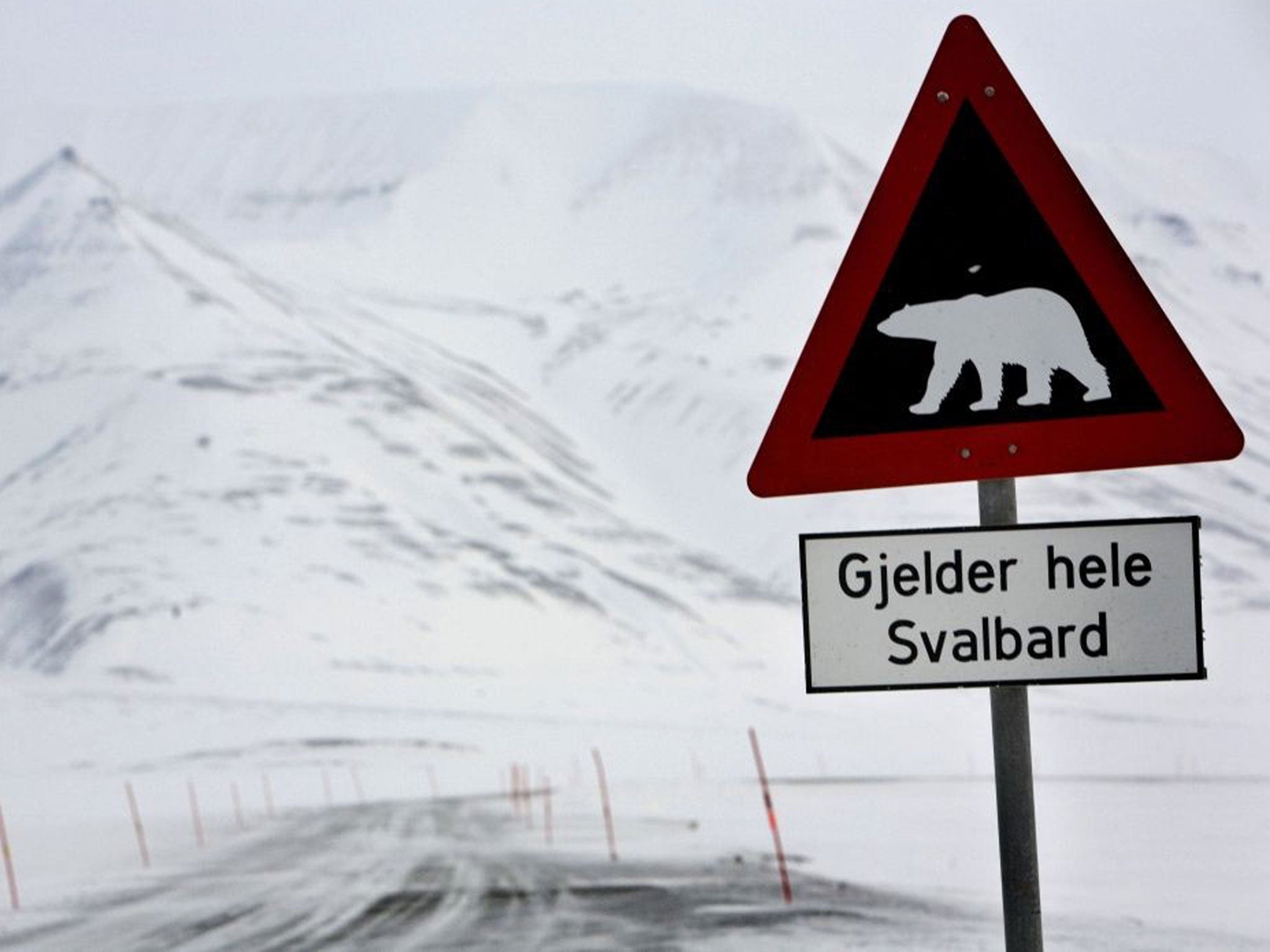Norwegian politicians propose putting refugees on Svalbard – remote Arctic islands with more polar bears than people
Country’s Green Party hopes that putting people on the archipelago will boost employment for the 2,600 people who live there – who are outnumbered by the 3,000 polar bears

Your support helps us to tell the story
From reproductive rights to climate change to Big Tech, The Independent is on the ground when the story is developing. Whether it's investigating the financials of Elon Musk's pro-Trump PAC or producing our latest documentary, 'The A Word', which shines a light on the American women fighting for reproductive rights, we know how important it is to parse out the facts from the messaging.
At such a critical moment in US history, we need reporters on the ground. Your donation allows us to keep sending journalists to speak to both sides of the story.
The Independent is trusted by Americans across the entire political spectrum. And unlike many other quality news outlets, we choose not to lock Americans out of our reporting and analysis with paywalls. We believe quality journalism should be available to everyone, paid for by those who can afford it.
Your support makes all the difference.Norwegian politicians are looking into sending refugees to Svalbard, an Atlantic archipelago that is one of the world’s most remote areas – and which is currently inhabited by more polar bears than people.
Local representatives hope that Svalbard could receive and then home refugees.
The party has asked Svalbard’s Governor to look into the legality of the plan, which could be undone by the fact that Svalbard isn’t part of the Schengen free movement area and so can’t take people as easily, according to local reports.
Local politicians have committed to work “100 per cent” for a quick realisation of the plan if it is proved legal, according to local reports.
Many of the people living on the islands are employed by coal miners. But that work is precarious – one of the country’s main employers, miner Store Norske, announced recently that it would be sacking 150 employees.
Building a reception centre for migrants would be safer work, as well as helping fulfill the country’s moral obligation to migrants, according to the politicians proposing it.
"A reception centre would of course create jobs, but that is a positive side effect of something much more important than coal mining, that's not our primary concern,” Espen Klungseth Rotevatn, the leader of the Green Party on the islands, told the local Vårt Land newspaper. “Europe is on fire, and it is now that our values and ethical standards are put to the test.”
The only group to propose putting people on the island in the past has been the country’s anti-immigration Progress Party. One member proposed in May that Norway should send 10,000 immigrants to the islands – later retracting his statement and saying it was simply a way of demonstrating how little space the country has.
Right-wing politicians have previously suggested that the islands be used as a prison camp for addicts and criminals.
It isn’t clear that Norway would be able to send refugees to Svalbard, because of the special status of the islands. But politicians hope that might actually make it easier for people to live and work there.
The Greens hope to make use of a special treaty signed in 1920 to send people to the island. The Svalbard Treaty has been signed by over 40 countries and says that all signatories have equal rights to engage in commercial activities there, but recognizes the sovereignty of Norway over the islands.
While Syria hasn’t signed the agreement, Afghanistan has. And politicians hope that the special status of international people on the islands could make it more able to take in refugees.
It wouldn't be the first time that Norway is housing refugees through a legal loophole – it emerged last month that some people were heading into the country on bikes, to get around a stipulation that refugees cannot enter the country by foot or in someone else's car.
Join our commenting forum
Join thought-provoking conversations, follow other Independent readers and see their replies
Comments